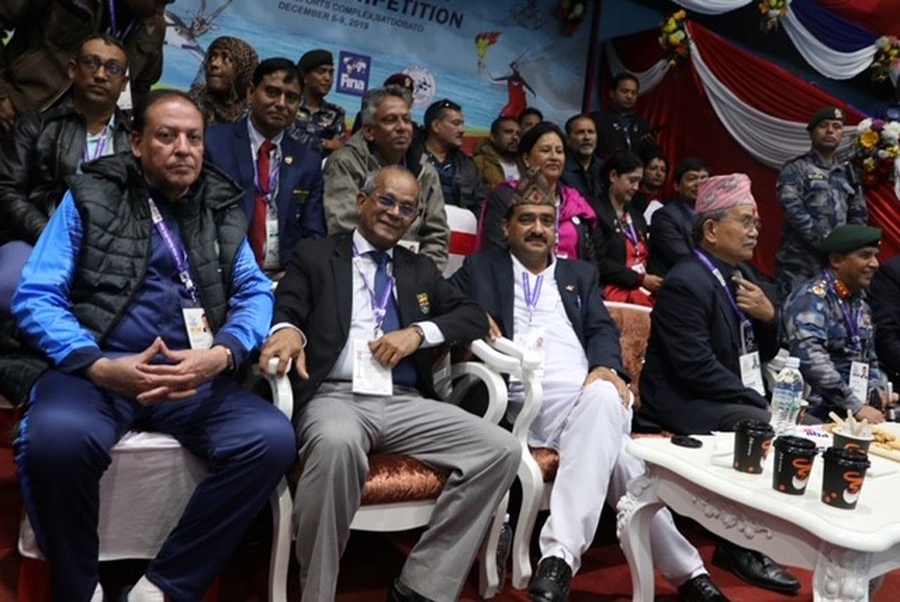Kathmandu, Nepal, December 7, 2019: The South Asian Games should be held every four years according to a top official of the South Asian Olympic Council (SAOC), Sri Lanka’s Maxwell de Silva, who is also proposing that the Games be commercially marketed to attract much-needed revenue. De Silva, who is also the Secretary General of the Sri Lanka Olympic Committee and a stalwart of Asian sport, has called for the constitution of SAOC - the regional governing body - to be amended so that these changes can be implemented. “It is important that these changes be made soon and I believe it must be done with the help of the Olympic Council of Asia, who have the expertise to help SAOC move forward with the times,” De Silva said speaking on the sidelines of the 13th South Asian Games in Kathmandu and Pokhara. The Sri Lankan official believes the involvement of the OCA – the governing body for all of Asia - is crucial as the populous region tries to map out a blueprint for the future of the South Asian Games. Apart from moving the Games from a biennial event to one held every four years, and for the Games to be marketed, De Silva has also suggested: *South Asian Games to come more under the control of local organising committees than governments; *South Asian Olympic Council to have more input into the running of future Games so that standards can be maintained; *A benchmark be kept for Games resulting in guaranteed quality in everything from facilities to organising capabilities. “At present, everything is done on an ad hoc basis by the host nation. While Nepal has done a great job in organising the 13th South Asian Games much more can be done to make future events more professional,” De Silva pointed out. While lauding the Nepal Olympic Committee and SAOC for selling the broadcast rights to these Games for the first time – Indian company NK Media Ventures Pvt Ltd. brought the rights for around US$700,000 – De Silva firmly believes much more can be done to market the Games. “We have some of the biggest countries in terms of population – India, Bangladesh, Pakistan – and it would make sense to make the Games commercially viable so that SAOC can earn much-needed revenue,” De Silva said. “The best way forward in this aspect would be to work closely with the Olympic Council of Asia and get a model running,” he said. De Silva also called for tighter monitoring of a host nation’s preparations by a SAOC coordination committee. Nepal organisers postponed these Games, originally to be held in March this year, to December due to facilities being still under construction. It was mainly because of the 2015 earthquake which hit Kathmandu killing nearly 9,000 people and injuring more than 22,000. Work on the centerpiece Dasharath Stadium, which was affected by the earthquake, was going on until the day before the Opening Ceremony on December 1. The swimming pool at Satdobato Sports Complex was another venue where work was being carried out right until the eve of competition. “We have to raise standards from an organising point of view. Everything from media, medical, transport and security should be gone through with a fine toothcomb. We need set guidelines on how each sport should be run within the Games. There are many areas to be improved so that future Games will work like clockwork. “For this we have to take a leaf from organisers of the Asian Games. This is why I believe the input from the Olympic Council of Asia will be crucial,” De Silva said. “It takes a lot of effort to put on a multi-sport Games. That is why I feel we should move from a two-yearly event to one held every four years. “The next South Asian Games is set for 2021, which is ideal as it comes a year before the Asian Games. Following this we should stick to a four-year time frame in the future,” De Silva added.
Top official proposes major changes to South Asian Games




